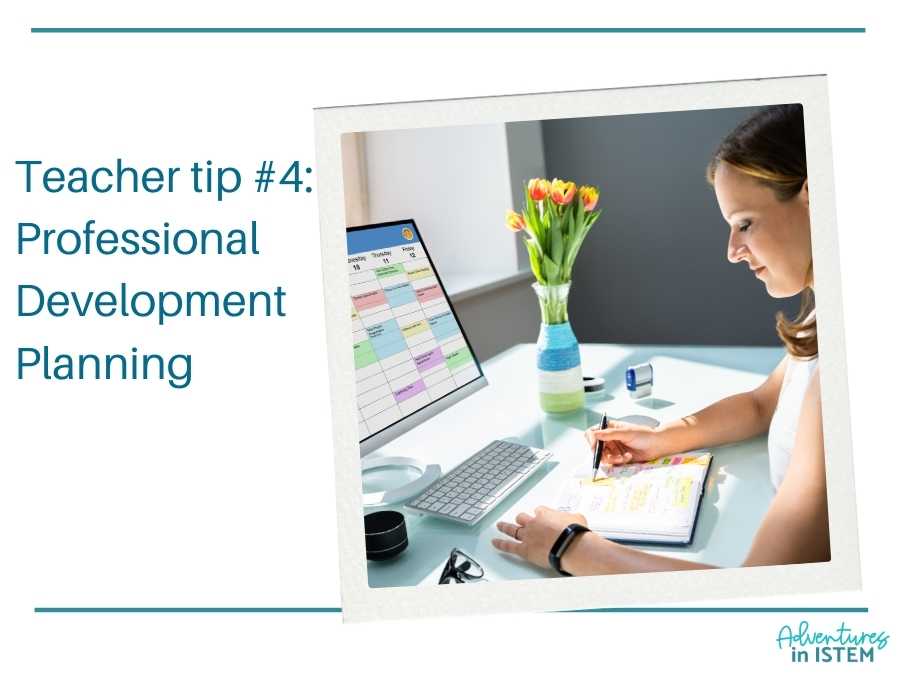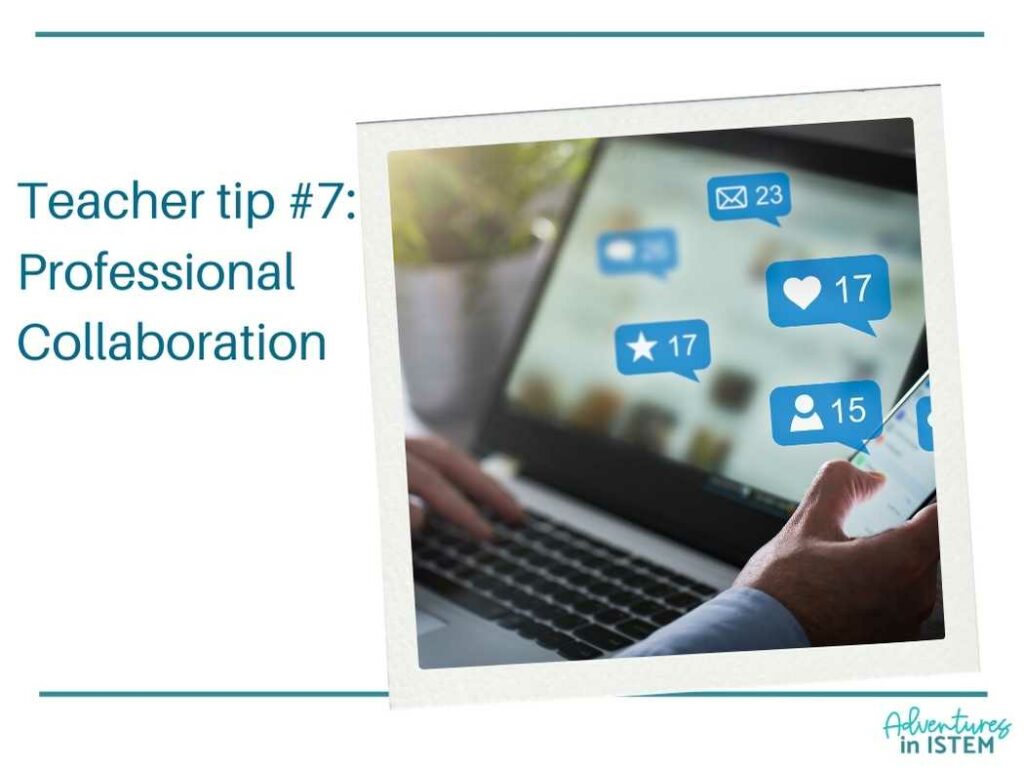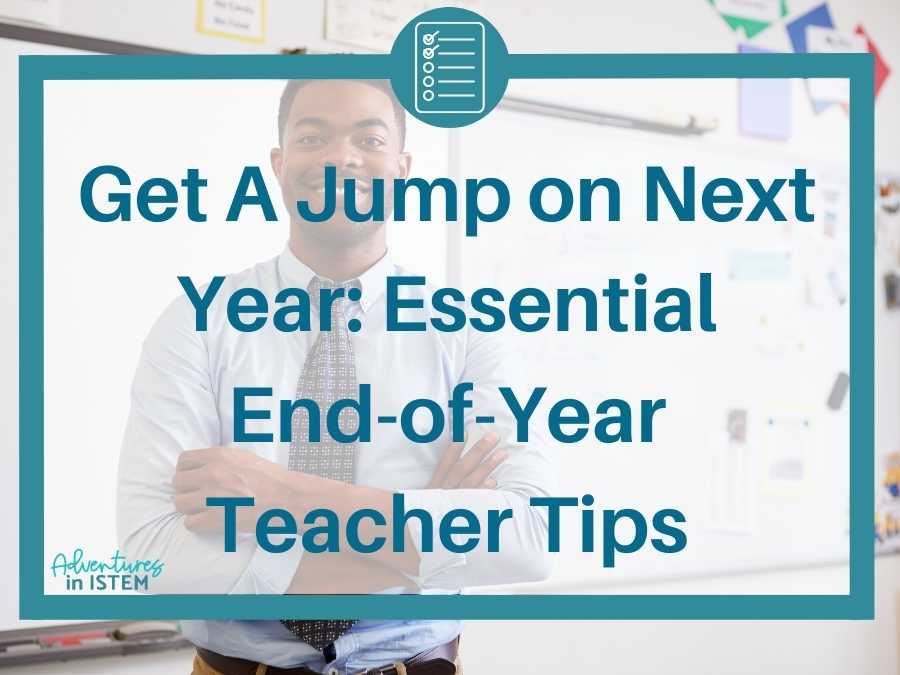
As the school year draws to a close, us middle school science teachers, or any teacher for that matter, have a great opportunity to set ourselves up for success in the upcoming academic year. By completing essential end-of-year tasks, we can make our life easier when we return to the classroom after the summer break. I like to accomplish some of these while my students are doing their state testing. Here are ten teacher tips to consider when wrapping up your year:
Teacher tip #1: Classroom Cleaning and Organization
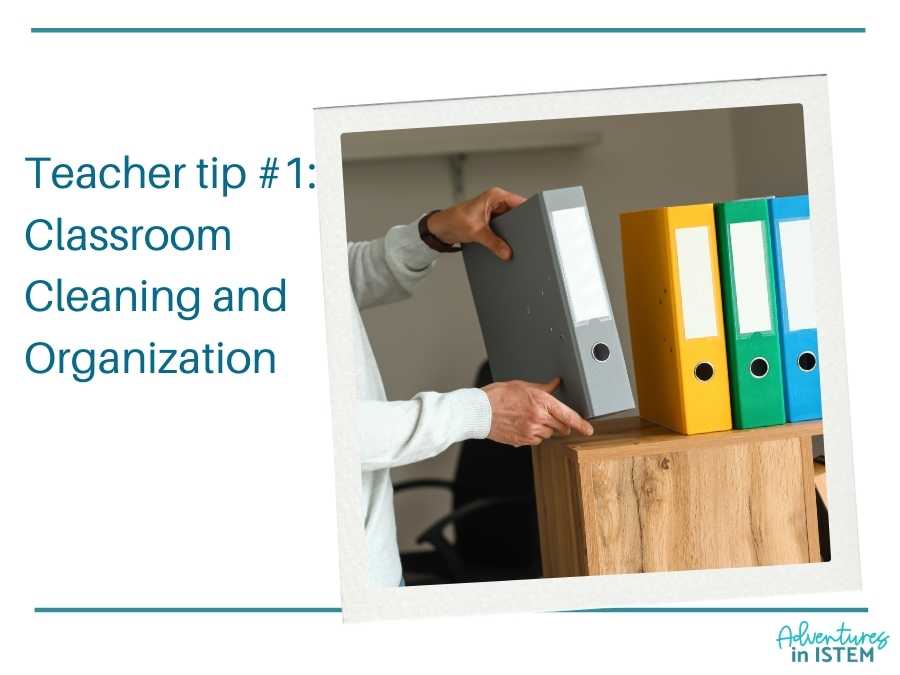
Cleaning and organizing the classroom at the end of the school year benefits you for the following year in several ways. Firstly, it allows for reflection on current organizational systems, helping you identify what works well and what needs improvement.
This assessment aids in making informed decisions about layout and resource management for the upcoming year, ensuring you are well-prepared with necessary materials and a functional classroom environment.
Secondly, tidying up creates a clean slate for planning curriculum and activities, fostering creativity and customization to meet students’ needs. By addressing these tasks before the summer break, you can save time and stress during the back-to-school rush, promoting a sense of readiness and professionalism for the new academic year.
Teacher tip #2: Inventory Management
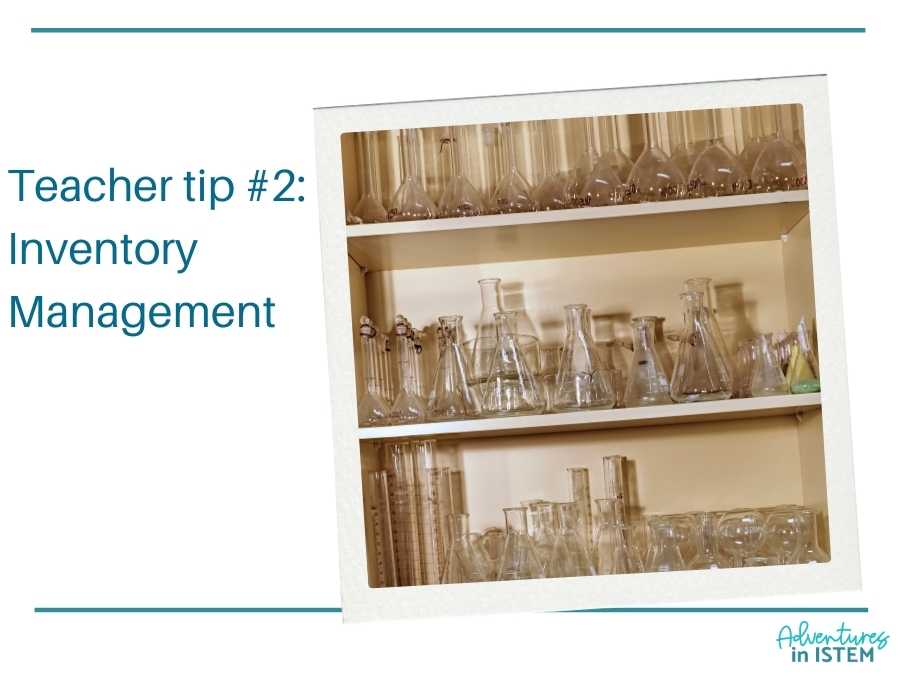
Managing classroom inventory is a crucial aspect of efficient teaching, and doing so at the end of the school year offers distinct benefits. By taking stock of supplies and noting any deficiencies before summer break, you can avoid the stress of last-minute scrambling when the new academic year begins.
You will know which supplies you are short on and which ones need to be replaced during the back-to-school sales that seem to happen a week after school gets out for the summer. This proactive approach ensures that classrooms are well-equipped from day one, allowing you to focus on lesson planning and instruction rather than hunting down missing materials.
Additionally, regular inventory checks enable you to anticipate your needs and allocate resources effectively, ensuring that they have everything necessary to facilitate engaging and hands-on science lessons.
Overall, maintaining an organized inventory not only streamlines classroom operations but also enhances the learning experience for students by providing access to the resources you need to succeed.
Teacher tip #3: Curriculum and Lesson Plan Review
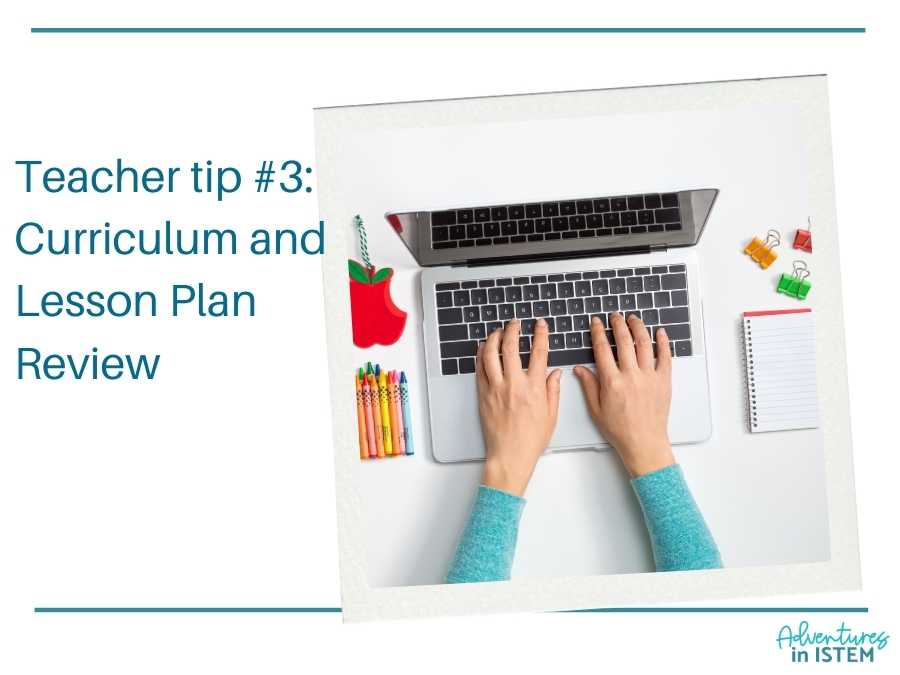
Taking time to reflect on the previous year’s curriculum and lesson plans at the end of the school year offers numerous benefits for you. By reviewing what worked well and where improvements can be made, you gain valuable insights that inform your teaching approach for the next academic year.
Updating teaching materials based on this reflection ensures that lessons remain relevant, engaging, and aligned with educational goals, ultimately enhancing student learning outcomes.
Moreover, refining lesson plans now allows you to proactively address any challenges encountered during the previous year, fostering a more seamless and effective learning experience for your students when classes resume.
By investing time in reflection and refinement at the end of the year, you set yourself up for success in delivering high-quality instruction and facilitating meaningful learning experiences in the future.
Teacher tip #4: Professional Development Planning
Taking advantage of the summer break for professional growth and development offers you numerous benefits, particularly when it comes to enhancing your science teaching skills.
Attending workshops, conferences, or online courses focused on science education during this time provides you with opportunities to stay updated on best practices and innovative teaching strategies. Summer is a great time to learn about different teaching models like the flipped classroom model or the 5E model.
Additionally, balancing relaxation with growth opportunities ensures that you make the most of your summer break, returning to your classroom with renewed energy and a fresh perspective, ultimately benefiting yourself and your students in the upcoming academic year.
Teacher tip #5: Student Assessment and Data Analysis
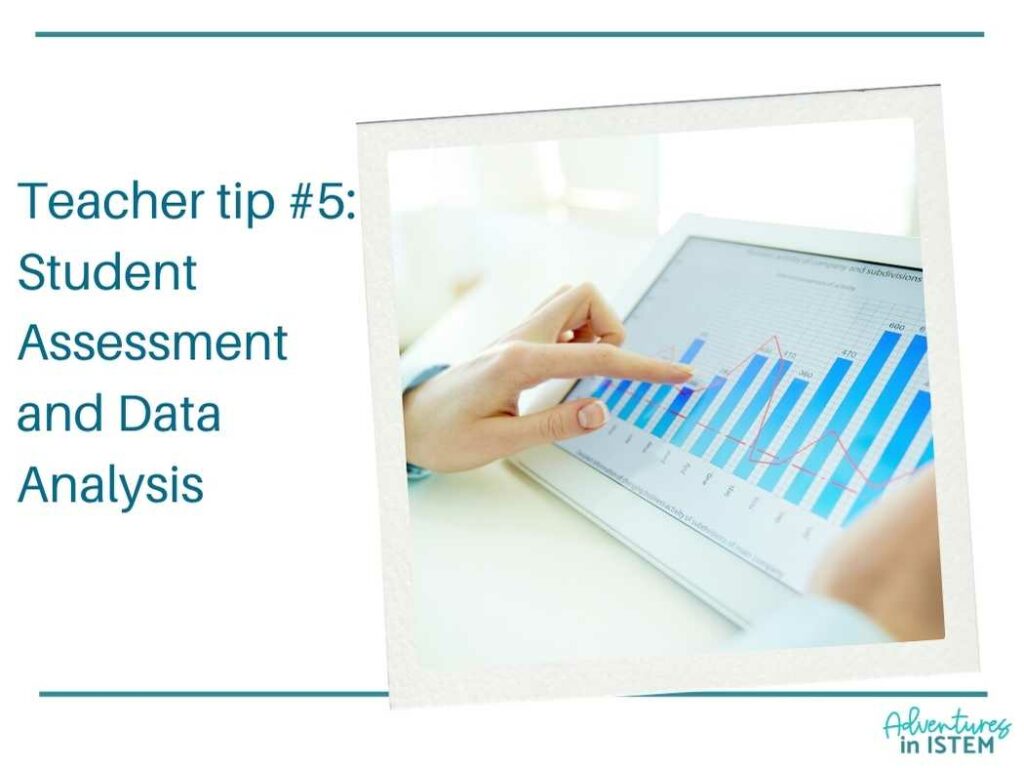
Reviewing student assessments and analyzing data at the end of the school year benefits you in understanding their current students’ needs and aids in planning for the upcoming year with new students.
By examining assessment data from the previous year, you can identify overarching trends and patterns in student performance, which can inform your instructional approach for the next cohort of students. This retrospective analysis provides valuable insights into common areas of strength and weakness among students, allowing you to anticipate potential challenges and tailor your teaching strategies accordingly.
Furthermore, reflecting on student assessments helps you identify recurring misconceptions or areas of difficulty that may need to be addressed early on with new students. With this knowledge, you can proactively plan targeted interventions and scaffolding activities to support student learning from the outset of the new academic year.
Additionally, analyzing data from the previous year enables you to set realistic goals and benchmarks for student progress, ensuring they are well-prepared to monitor and track growth effectively with your new students. By leveraging insights gained from reviewing student assessments, you can approach the new school year with a deeper understanding of your student’s needs and a more strategic plan for fostering their academic success.
Teacher tip #6: Technology and Equipment Check
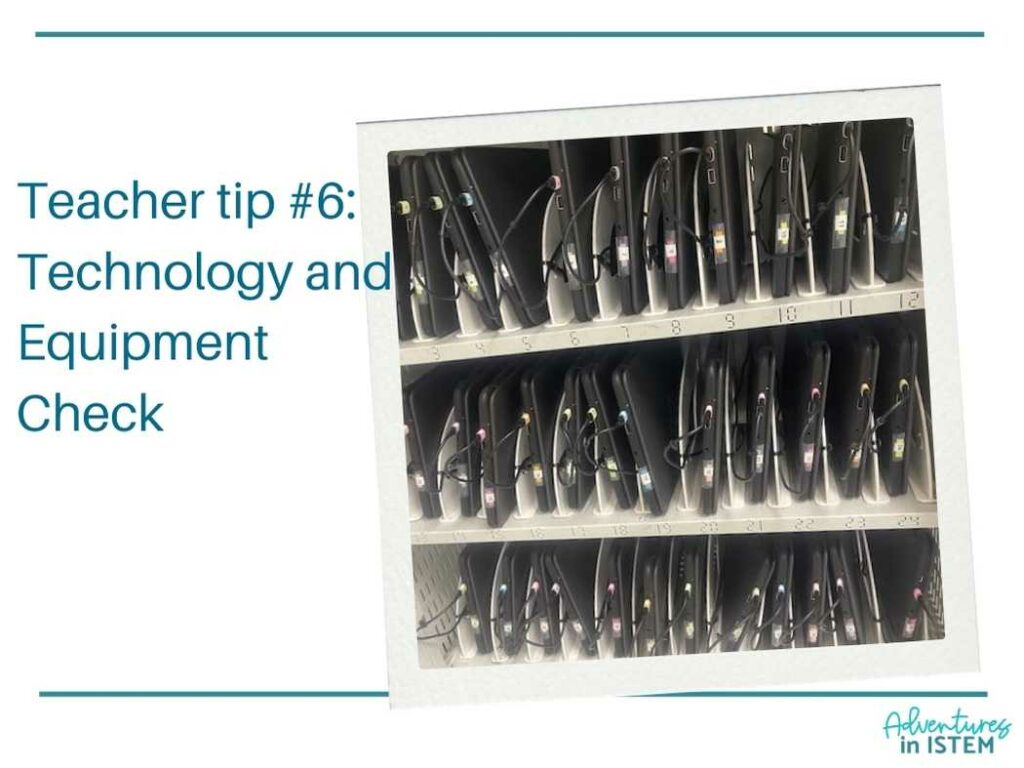
Conducting a thorough technology and equipment check at the end of the school year offers several benefits as you prepare for the upcoming academic year. By assessing the condition of classroom technology and equipment now, you can identify any issues or malfunctions that may need attention before the next cohort of students arrives.
This proactive approach ensures that all necessary tools and resources are in good working order, thus minimizing disruptions to hands-on science learning experiences once classes resume.
Moreover, creating a comprehensive list of any repairs or replacements needed enables you to address these issues promptly during the summer break. By tackling maintenance tasks ahead of time, you can avoid potential delays or inconveniences when it comes time to utilize technology and equipment in your lessons.
In essence, by conducting a technology and equipment check at the end of the year, you can proactively address any potential challenges and ensure a smooth start to the new school year, ultimately enhancing the overall learning experience for you and your students.
Teacher tip #7: Professional Collaboration
Professional collaboration through social media during the summer break offers educators numerous benefits for enhancing science education. Teachers can connect with colleagues worldwide, exchange ideas, and collaborate on innovative teaching strategies by participating in online communities and forums dedicated to science education.
Platforms like Facebook groups, Twitter chats, and educational forums provide virtual spaces to share resources, learn about new technologies, and explore diverse perspectives—all of which enrich teaching practices.
Engaging with other educators on social media also facilitates ongoing professional development throughout the summer months. By following influential educators and educational organizations, teachers can stay updated on the latest trends and research in science education, continuing to grow and evolve as professionals.
Leveraging social media for professional collaboration empowers educators to access a global network of support and knowledge, ultimately benefiting their students by enhancing the quality of science education they provide.
Teacher tip #8: Field Trip Planning and Skype a Scientist
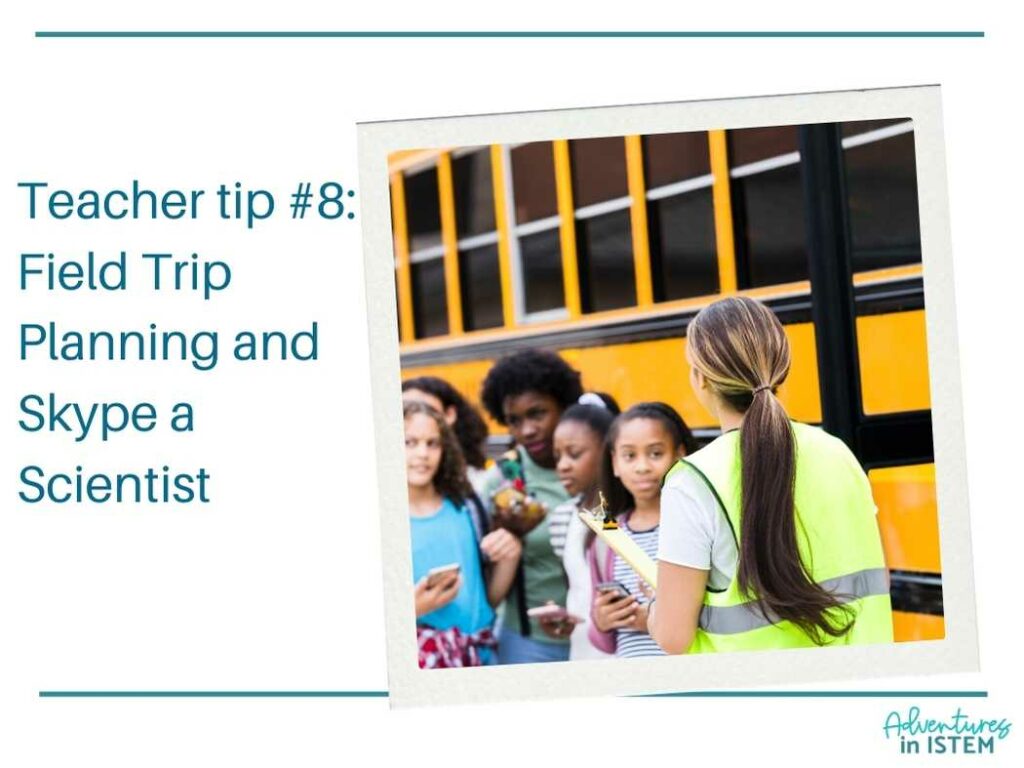
If you plan on doing a field trip next year or taking part in the Skype a Scients program, you will want to get a start on it. Getting a head start on these tasks offers several advantages for ensuring smooth and enriching student experiences.
By organizing logistics and securing necessary permissions ahead of time, you’re setting yourself up for success when it comes to executing science-related field trips. Plus, starting to schedule Skype a Scientist sessions based on your upcoming curriculum allows you to integrate real-world connections into your lessons seamlessly.
Completing these tasks before the end of the school year is a game-changer. It alleviates stress and frees up your time and energy to focus on other essential aspects of preparation when classes resume. Instead of scrambling to coordinate logistics and reach out to scientists during the busy back-to-school period, you can confidently hit the ground running, knowing that these foundational elements are already in place.
So, by taking care of field trip planning and Skype a Scientist scheduling now, you’re ensuring smoother experiences for your students and setting yourself up for a more organized and less stressful start to the new school year.
Teacher tip #9: Classroom Safety Check
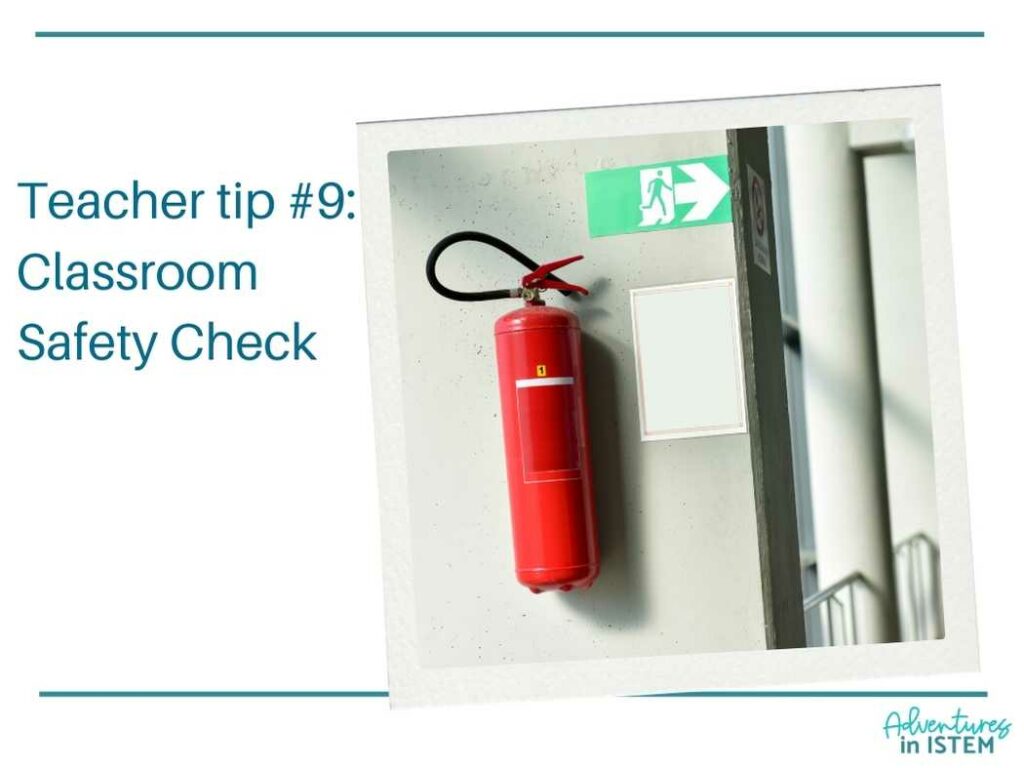
Maintaining a safe learning environment is paramount in science education. Taking the time to assess the safety of your classroom and laboratory equipment now offers several key benefits for both you and your students.
By ensuring that safety protocols are up to date and that necessary supplies are readily available, you’re prioritizing the well-being of everyone in the learning environment.
Completing this safety check before the year ends allows you to address any potential hazards or concerns proactively. You can make any necessary adjustments or repairs, ensuring your classroom is safe and conducive for hands-on exploration and experimentation.
By fostering a safety culture, you’re protecting your students and creating an environment where they feel empowered to engage in curiosity-driven learning experiences. So, by prioritizing classroom safety now, you’re setting the stage for a successful and enriching learning journey for you and your students in the upcoming school year.
Teacher tip #10: Professional Development and Resource Research
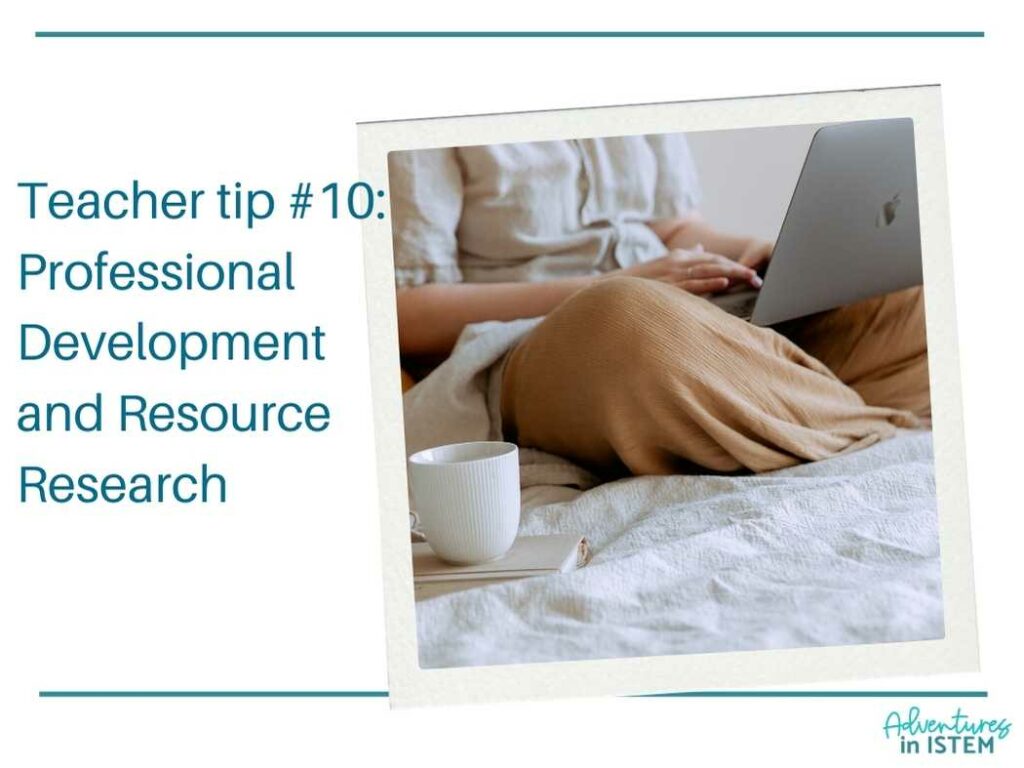
When it comes to professional development and resource research, conducting this exploration at the end of the school year offers significant benefits for you as an educator. Researching new teaching resources and opportunities for professional growth ensures that you stay informed about the latest advancements in science education.
By exploring workshops, conferences, and online courses now, you’re setting yourself up to expand your skill set and discover innovative approaches to teaching science.
Investing in continuous learning demonstrates your dedication to excellence and positions you to inspire the next generation of scientists and innovators. By staying up to date with the latest trends and best practices in science education, you’re better equipped to meet the evolving needs of your students and deliver high-quality instruction.
So, by prioritizing professional development and resource research at the end of the school year, you’re investing in your own growth as an educator and laying the groundwork for continued success in the classroom.
Taking the time to address various aspects of classroom preparation at the end of the school year is crucial for ensuring a smooth and successful transition into the next academic term. From organizing classroom materials and reviewing curriculum plans to conducting safety checks and exploring professional development opportunities, each step plays a vital role in setting the stage for an enriching learning experience for you and your students.
By investing effort now, you’re alleviating stress, promoting readiness for the upcoming year, and demonstrating your commitment to excellence in science education. So, as you wrap up the current school year, take advantage of this opportunity to prepare for the future, knowing that your proactive approach will lay the foundation for continued growth and success in the classroom.
Here is a blog post you might like:
